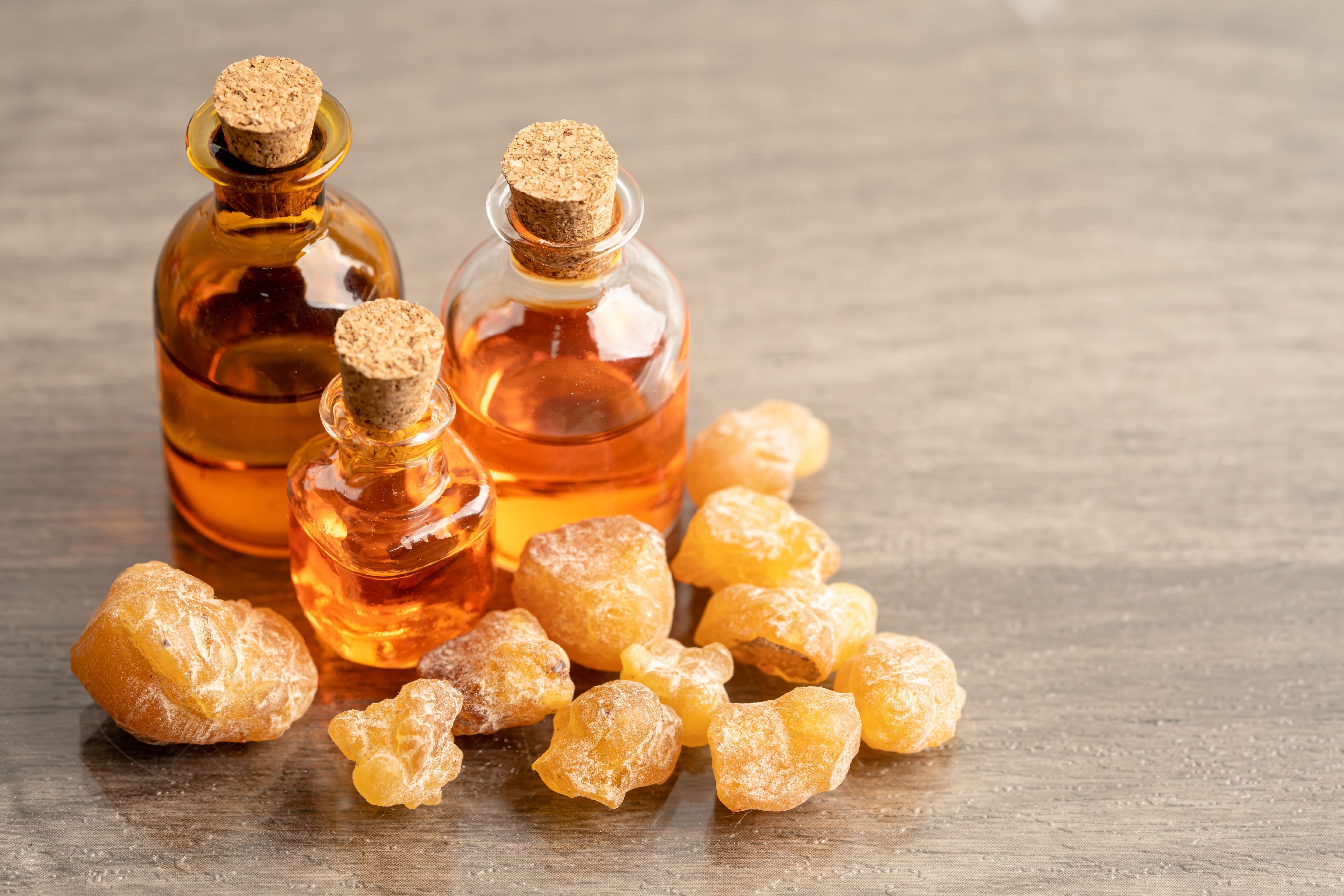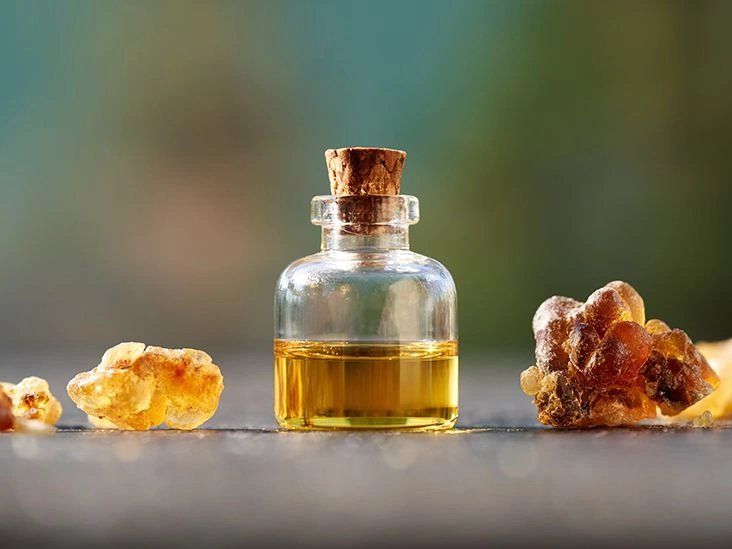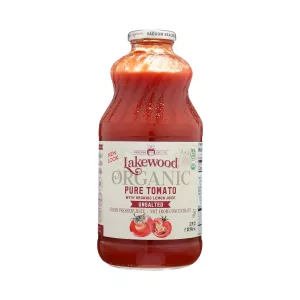Frankincense is a resin long used in traditional healing practices. People often use it to help manage conditions such as arthritis and asthma, among others. However, many marketing claims aren’t fully supported by rigorous evidence.

Also called olibanum, frankincense is the hardened sap of the Boswellia tree, which grows mainly in the arid, mountainous areas of India, Africa, and the Middle East.
It has a warm, spicy-woody aroma and can be inhaled, absorbed through the skin, or taken as an oral supplement.
1. Frankincense may ease arthritis symptoms
Researchers think frankincense may inhibit the production of leukotrienes — molecules that promote inflammation.
Terpene compounds, especially boswellic acids, appear to be the primary anti-inflammatory agents in frankincense.
Osteoarthritis
In a 2014 animal study, oral and topical boswellic acid reduced cartilage damage and inflammation of the joint lining in mice with osteoarthritis. In human trials, frankincense extracts have lessened symptoms of both osteoarthritis and rheumatoid arthritis.
A 2018 review found frankincense consistently outperformed placebo for decreasing osteoarthritis pain and improving mobility, although most included studies were low quality and further research was recommended.
In one trial, participants took 169.33 milligrams (mg) of Boswellia extract twice daily for 120 days; the supplement reduced inflammation, joint pain, and stiffness in mild to moderate knee osteoarthritis without serious adverse events.
Another study reported that topical olibanum (frankincense) oil lessened osteoarthritis pain after six weeks, but did not significantly improve participants’ ability to perform daily tasks or engage in sports.
Frankincense used in combination with other supplements may also be beneficial.
A study observed that a supplement containing 350 mg curcuminoids plus 150 mg boswellic acids taken three times daily for 12 weeks reduced osteoarthritis pain more than curcumin alone or placebo.
Similarly, taking a combination of 5 g methylsulfonylmethane and 7.2 mg boswellic acids daily for 60 days was more effective at improving pain and function than glucosamine sulfate, a common osteoarthritis supplement.
Rheumatoid arthritis
In animal research where arthritis was induced in rats, treatment with 180 mg/kg Boswellia extract reduced inflammation, although it was not as effective as conventional medications.
2. Frankincense may support gut health
One trial found that frankincense, combined with other herbal remedies, reduced abdominal pain, bloating, and associated anxiety and depression in people with irritable bowel syndrome (IBS).
Another study reported that taking 250 mg Boswellia tablets daily for six months improved symptoms in people with IBS.
Frankincense seems particularly promising for alleviating symptoms of ulcerative colitis, an inflammatory bowel condition.
A study showed Boswellia extract taken daily for four weeks improved symptoms in people with mild ulcerative colitis in remission.
In animal models, Boswellia extract demonstrated anti-inflammatory and antioxidant effects in rats with colitis.
However, many studies are small or preclinical, so larger human trials are needed before drawing firm conclusions.
3. Frankincense may ease asthma symptoms
Traditional systems have used frankincense to treat respiratory ailments like bronchitis and asthma for centuries.
Its active components may inhibit leukotriene synthesis, which contributes to bronchial constriction in asthma.
Frankincense may also modulate Th2 cytokines, which can drive inflammation and mucus production in asthma sufferers.
In one small study, participants taking 500 mg Boswellia extract daily alongside their regular asthma treatment required fewer inhalations during the four-week trial.
When researchers administered a 200 mg supplement combining frankincense and the South Asian fruit bael (Aegle marmelos), the product performed better than placebo at reducing asthma symptoms.
In another study, asthma symptoms improved in mice treated with boswellic acid, a frankincense constituent.
4. Frankincense may benefit oral health
Frankincense might help oral hygiene and guard against gum disease. The boswellic acids it contains appear to have notable antibacterial activity, which could help prevent or treat oral infections.
In one study, frankincense extract was effective against Aggregatibacter actinomycetemcomitans, a bacterium linked with aggressive periodontal disease.
In a very small trial, participants chewed gum infused with frankincense for five hours; saliva samples showed decreasing microbial counts each hour, suggesting frankincense could lower oral sources of infection.
Still, more robust research is required to confirm its oral health effects.
5. Frankincense may have anticancer activity
Test-tube studies indicate that boswellic acids may inhibit cancer cell proliferation and spread.
One review suggests boswellic acids might interfere with DNA synthesis in malignant cells, potentially limiting tumor growth.
So far, in vitro studies imply frankincense may act against breast, pancreatic, and other cancer cell types, and it might reduce side effects from cancer therapies.
In a small clinical observation of patients treated for brain tumors, 4,500 mg daily of a boswellic acid extract helped reduce brain edema (fluid accumulation) and allowed a reduction in standard medication dosing.
Nevertheless, more comprehensive human trials are required.
Common misconceptions about frankincense
Although frankincense is credited with numerous health benefits, not all assertions are strongly supported by science. The following claims currently have limited evidence.
Because research is sparse, neither strong support nor definitive refutation exists for some claims. Until better studies are conducted, consider these points speculative.
Myth: It prevents diabetes
Some small trials suggest frankincense might lower blood glucose in people with diabetes, and a review hinted it could help control diabetes. However, other studies found no effect, so more research is necessary.
Myth: It reduces stress, anxiety, and depression
Frankincense reduced depressive- and anxiety-like behaviors and lowered stress in rats, but human evidence is lacking.
Myth: It prevents heart disease
Because of its anti-inflammatory properties, frankincense might theoretically reduce inflammation linked to heart disease. Some studies hint at cardioprotective effects, but more research is needed.
Myth: It improves memory
High doses of frankincense improved memory in rodent studies, but human trials are required to confirm this effect.
Myth: It balances hormones and eases menstrual symptoms
Claims that frankincense delays menopause or relieves cramps, nausea, headaches, or mood swings are common. Some essential oils have been associated with increased salivary estrogen in women, potentially easing menopausal symptoms, but frankincense itself has not shown this effect definitively. More research is necessary.
Myth: It boosts fertility
Frankincense supplements improved fertility markers in rats in limited studies, but data in humans are scarce.
How to use frankincense
Frankincense is available as oral supplements in capsules or tablets and in topical creams. It’s also sold as an essential oil for aromatherapy or topical application. Essential oil should be diluted in a carrier oil before skin use and generally should not be ingested.
Although generally regarded as safe for many people, consult a healthcare provider before starting any frankincense supplement.
Recommended frankincense dosing
Precise dosing recommendations for frankincense are not well established and likely depend on the condition and individual factors.
If you plan to use frankincense supplements, ask a healthcare professional for personalized guidance on dosage.
Possible side effects and interactions
Frankincense is typically safe for most people and has a long history of use without severe adverse effects; the resin shows low toxicity.
One study found doses up to 1,000 mg/kg were non-toxic in rats — roughly five times the common maximum human daily dose of 1,500 mg. Nevertheless, human toxicology data are limited.
Reported side effects in studies include indigestion, constipation, and nausea.
Some evidence suggests frankincense may increase miscarriage risk, so pregnant people or those trying to conceive may wish to avoid it.
Frankincense may interact with certain medications, notably blood thinners like warfarin and possibly NSAIDs such as ibuprofen. If you take these drugs, discuss frankincense with your clinician before use.
The French Agency for Food, Environmental and Occupational Health & Safety (ANSES) warned in a 2020 report that some supplements, including frankincense, might alter the body’s inflammatory response during a COVID-19 infection.
Conversely, some research has proposed frankincense could serve as a complementary therapy for COVID-19 due to its anti-inflammatory effects in some studies. More investigation is needed on safety, effectiveness, and drug interactions.
Frequently asked questions
What are the benefits of frankincense?
Used traditionally in Ayurvedic medicine, frankincense may help with conditions such as arthritis, digestive complaints, and asthma, and it may support oral health.
How is frankincense applied therapeutically?
Frankincense is used in various ways, including oral supplements, topical applications, and aromatherapy. It may offer benefits for arthritis, gut health, oral hygiene, and possibly possess anticancer activity, though evidence varies.
What happens if you apply frankincense directly to the skin?
Frankincense essential oil is promoted for acne and anti-aging skin benefits. A study suggested frankincense oil could have skincare potential, but overall research is limited.
The bottom line
Frankincense appears safe for most people but may pose risks for pregnant individuals and those taking certain medications. As with any supplement, consult your healthcare provider before using it.

























Leave a Reply
You must be logged in to post a comment.